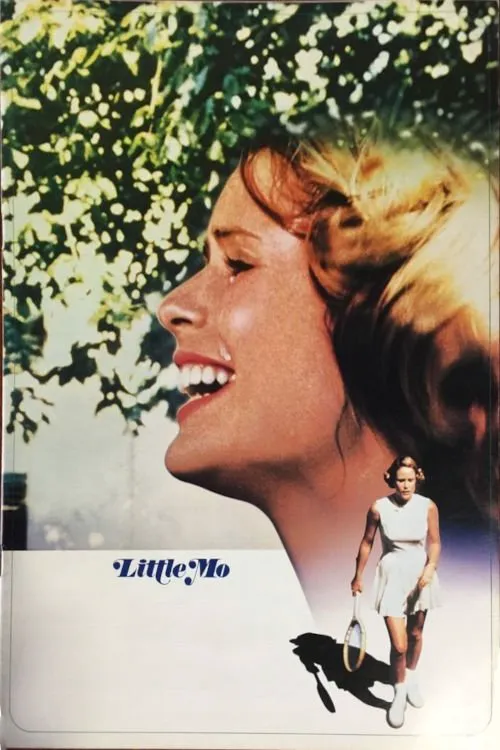Little Mo

Plot
Little Mo, the 1978 American biographical film, takes viewers through the life of Maureen Connolly, an accomplished tennis player from the United States. Born in 1934, Maureen grew up in San Antonia, Texas. The film begins with her early days of training under her strict coach, who emphasizes the importance of hard work and perseverance. This unwavering dedication sets the tone for Maureen's journey to tennis greatness. In 1953, at the age of 18, Maureen wins the first Grand Slam of Tennis in women's singles, cementing her title as the first female tennis player in history to achieve this feat. The success catapults her to international recognition, and she earns the nickname "Little Mo." Fans of the young star, including film director and tennis enthusiast Michael Curtiz's wife, admire her incredible skill on the court. Throughout her career, Maureen faces intense pressure from fans and critics alike. Her early success creates expectations of consistent greatness, and the stakes are raised as each tournament approaches. Off the court, Maureen struggles to maintain relationships and navigate her youth amidst the glare of the spotlight. Her decision to get married before the height of her career leads to some tension and a degree of separation from the tennis world she has grown to dominate. As the years pass, Maureen's dominance on the court begins to slip, and injuries pile up. Despite these setbacks, she manages to win several tournaments and remains a force to be reckoned with in the tennis world. Her fame and charisma captivate audiences, and she becomes a celebrated figure in the sporting world. However, beneath the surface exists a painful reality that the film eventually confronts - Maureen's life is plagued by chronic back pain and a diagnosis of multiple sclerosis was initially considered in her youth before it was ruled out and she was later actually diagnosed with a bone cancer in 1964, from which she succumbs to at the age of 34 in 1969. This poignant portrayal of Maureen's life explores the high points and low points she endured in pursuit of greatness. From her emergence as a tennis sensation to the struggles and personal demons that accompany fame, Little Mo serves as a tribute to a remarkable athlete who has become an enduring symbol of perseverance and resilience. Shot during a pivotal time in American history, the film serves as a window into the lives and passions of female athletes who paved the way for future generations of women in sports. Maureen's remarkable tennis career is set against a backdrop of change, from the 1950s to the late 1960s, capturing both the cultural shifts and personal growth that define this era. Little Mo's cinematic rendition reminds audiences of the transcendent power of sports and its capacity to inspire and transform lives. The film offers an intimate portrayal of a remarkable talent whose impact extends beyond the tennis world. By tracing her journey from childhood to international recognition, viewers gain insight into the inner workings of an extraordinary athlete whose courage and unwavering commitment to her craft continue to inspire. With a nuanced exploration of her strengths and weaknesses, Little Mo offers an honest, affecting tribute that lingers long after the credits roll. In a broader sense, Little Mo also captures the struggles faced by women in sports who have historically been confined to limited opportunities for personal and professional growth. Maureen's story provides an important counterpoint to prevailing narratives around sexism and the constraints placed on women athletes, demonstrating how women can break free from societal expectations and assert their autonomy, particularly in male-dominated sports where they often struggle to earn recognition. The poignant story of Maureen 'Little Mo' Connolly remains an indelible reminder of her remarkable contributions to tennis and the enduring legacy of women athletes.
Reviews
Recommendations


